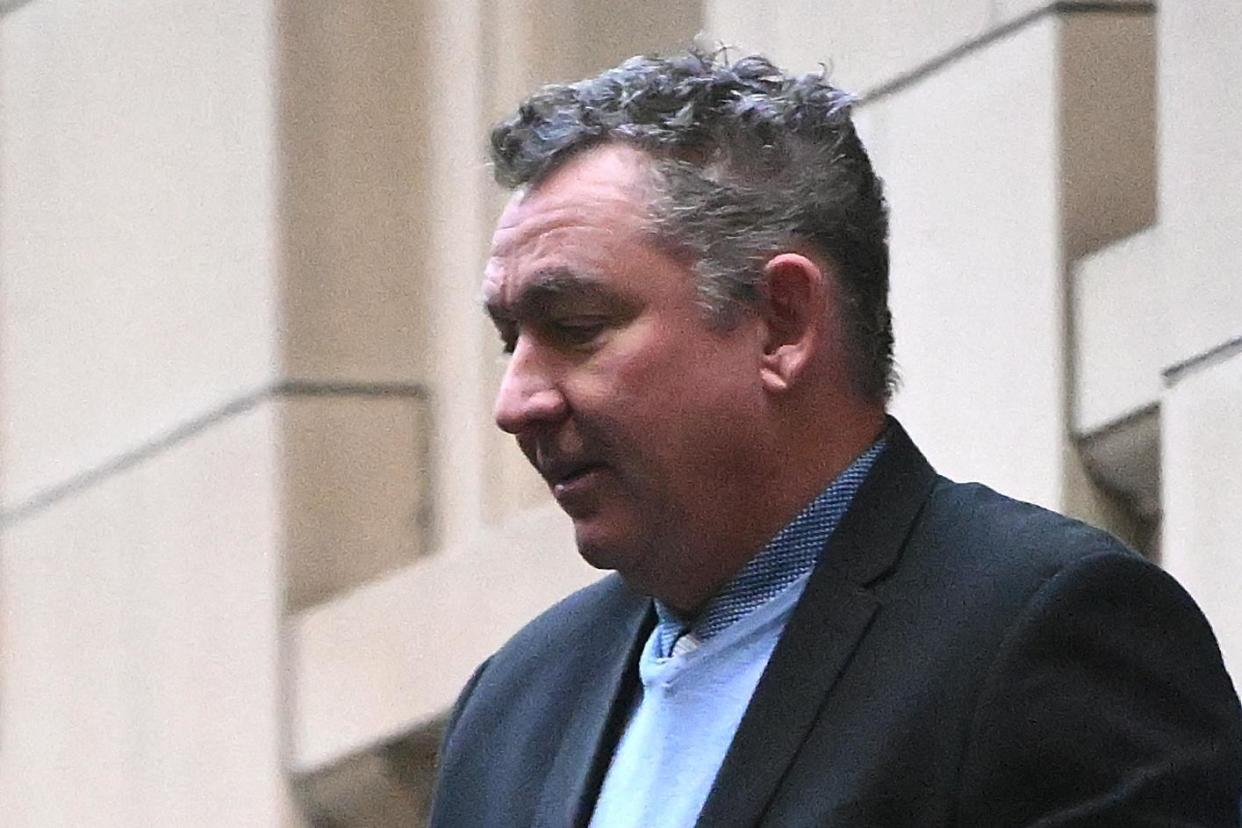Greg Lynn trial: jury asks question about split verdicts as double murder deliberations enter second week

A Victorian supreme court jury in the double murder trial of a former pilot has entered its second week of deliberation, with jurors reconvening to ask questions about the charges.
The 12-person jury is considering its verdict in the trial of Gregory Stuart Lynn, 57, who has pleaded not guilty to murdering Russell Hill, 74, and Carol Clay, 73, at a remote camping site in the Wonnangatta Valley in March 2020.
The jury began its full day of deliberations last Monday after the five-week trial.
Justice Michael Croucher on Monday told the court the jury had asked a series of questions, including asking for clarification on whether it had to reach the same verdict for each charge of murder.
The jury also asked Croucher to repeat the instruction regarding reaching a unanimous verdict and what happened if it was unable to reach a unanimous decision.
The first question referred to a direction in Croucher’s instructions to the jury. It said the fact there was no evidence of motive was “one of the many the circumstances you may take into account in determining whether you are satisfied, beyond reasonable doubt, that Mr Lynn committed murder in the first place”.
“Indeed, the absence of evidence of motive may well be a factor that causes you to reach the view that you are not satisfied beyond reasonable doubt that Mr Lynn murdered Mr Hill in the first place,” Croucher’s instructions said.
“And if you were not satisfied beyond reasonable doubt that Mr Lynn murdered Mr Hill, the prosecution accepts, rightly, that there would be no motive for him then to murder Mrs Clay.”
Croucher told the jury the law did not require the prosecution to prove motive but had to prove, beyond reasonable doubt, four elements of murder for a guilty verdict.
He said his direction did not mean the jury must find Lynn guilty of both charges or not guilty of both charges.
“You must consider each charge separately,” he said.
He said if the jury reached a point where it was unable to come to a unanimous verdict, “you would send me a note and I’d discuss it with counsel and answer that question at that point”.
“You have not reached that point yet,” Croucher said.
“For now … I would ask you to go back and consider your verdicts further.”
Croucher previously said the jury would not be able to consider manslaughter as an alternative charge to murder. He said if the jury was not satisfied beyond reasonable doubt on murder, it would also not be satisfied beyond reasonable doubt on manslaughter.
Prosecutors have alleged Hill was killed first, by unknown means, and that Clay was later shot in the head. Crown prosecutor Daniel Porceddu previously said Lynn then killed Clay because she was a witness in the violent murder of Hill.
The defence has argued both deaths were the result of a tragic accident. Lynn’s lawyer, Dermot Dann KC, previously told the court his client had “made a series of terrible choices” to cover them up.
Lynn, the defence’s only witness, told the court during the trial that Clay was shot in the head while he and Hill struggled over control of the former pilot’s shotgun after a dispute. He said Hill died in a subsequent struggle, after a knife accidentally plunged into his chest.

 Yahoo News
Yahoo News 
